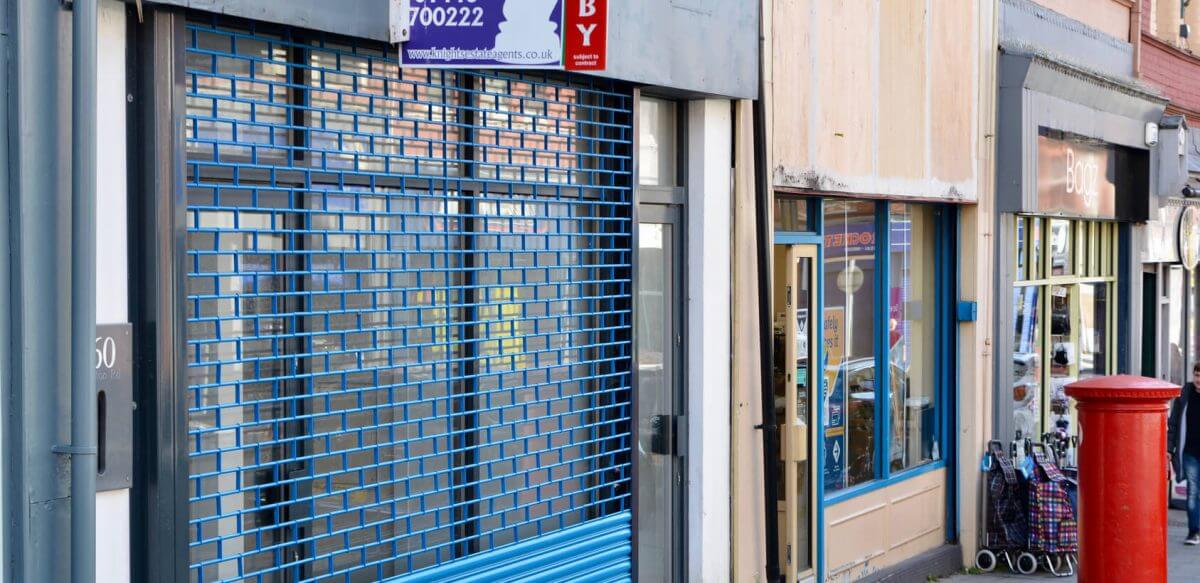A general movement towards online shopping and working from home had already created a challenging operating environment for commercial landlords, but the coronavirus pandemic has further exacerbated the issues. Retail business closures, government work-from-home instructions, and restrictions on the ability to enforce debts, have left commercial property businesses even more exposed to loss, and the ongoing threat of liquidation.

COMMERCIAL LANDLORDS AND LIQUIDATION
If your limited company is experiencing financial distress and you fear that liquidation might be your only option, there are a range of possible outcomes for your commercial property assets.
When you first enter liquidation the appointed office-holder will notify your tenant(s) of the liquidation by letter, and provide new bank details to make rent and service payments whilst liquidation takes place.
So what could happen to your commercial property following liquidation? A number of scenarios are possible, including:
THE PROPERTY IS SOLD
One of the office-holder’s principal aims in a liquidation is to provide creditors with as high a dividend as possible. This involves selling company assets and distributing the proceeds to creditors in the statutory order of priority.
As commercial properties can hold significant value in a liquidation process, your property could be sold. There may be high demand, particularly if it’s well maintained and situated in a favourable location.
ONE OR MORE LEASEHOLDERS PURCHASE THE FREEHOLD
As leaseholders, your tenants may be given first refusal to purchase the property. Under the Landlord and Tenant Act, 1987, the ‘Leaseholders’ Collective Right of First Refusal’ offers tenants this opportunity. If one or more tenants are in a position to make the investment, they can minimise the negative effect of your company’s liquidation on their own affairs.
LIQUIDATOR DISCLAIMS THE FREEHOLD
If the property holds no value, or a limited value that would be difficult to realise, the liquidator may decide to disclaim the freehold. This means they have no further responsibility or obligation with regard to the property.
Once the liquidator disclaims a lease as ‘onerous property,’ ownership reverts to the Crown – a situation known as ‘Bona Vacantia.’ The tenant then continues on with the lease under its existing terms and conditions, and your obligations under the lease are terminated.
What about ongoing property management?
Under landlord and tenant legislation, the tenant can propose to appoint a property professional to oversee maintenance of the building. This would help to preserve its value during the liquidation process, or the transfer to the Crown.
If a leaseholder is planning to purchase the freehold, they have a vested interest in how the building is maintained. They may decide, therefore, to apply to the First-tier Tribunal (FTT) in this respect.
PROFESSIONAL SUPPORT FOR YOUR COMMERCIAL PROPERTY BUSINESS
When your asset base is commercial property, it can be difficult to remedy financial problems quickly enough to stave off insolvency. Physical property is an illiquid asset – it takes time to sell, and bank lending may not be forthcoming.
If you’re a commercial landlord and your company is experiencing severe financial issues, you need to act quickly to prioritise your creditors’ interests. Liquidations can often be lengthy and complex affairs, and preserving asset value is a key issue in prioritising creditor interests whatever the outcome.
Seeking licensed insolvency support is crucial, and will help you understand your options and obligations under insolvency law. There are specific benefits to entering into liquidation voluntarily, as you may be eligible to claim redundancy pay as a director.
What happens to your commercial property following liquidation depends on several factors, including its inherent value, your tenant’s own financial position, and their willingness or otherwise to make an investment themselves.



